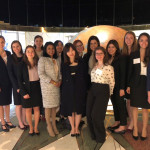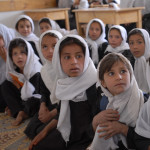
-
March 6By: Shane Fischman L’19 in conversation with Carlotta Pregnolato LSE LLM’19 and Rachael Baillie LSE LLM’19Historically, there has been widespread dissent over the precise definition of “feminism”. However, what is most powerful about the concept’s lack of a precise definition is that it is broad enough to encompass the hopes and ambitions of a plethora of different women around the world. International Women’s Day capitalizes on the different needs of women across the globe, presenting the opportunity for these vast and deviating needs to converge around a central theme, to demonstrate that despite our differences, despite our diverging needs, women are still—always—stronger when they are united. This is particularly important in an age where borders are becoming vapider, and people are migrating to different countries to pursue their ambitions. It is critical, therefore, on this momentous day, to understand what women in different places think and feel about feminism, about their country’s progress, and about their hopes for the future.
This past Fall, I had the distinct privilege to study law at the London School of Economics. I sat down recently with two female student-leaders from LSE to talk about feminism, how the movement has changed to adapt to the 21st century, and to hear their thoughts on entering the legal profession as young women. What is most interesting about this conversation is that, though all three of us come from different countries and backgrounds– Carlotta is from Italy, Rachael from New Zealand, and I am from New York– we all see ourselves as actors that are part of the larger societal fabric, intricately benefitting from, and contributing to the feminist movement. All three of us were touched by Hillary Clinton’s avowal that women’s rights are indeed human rights: with these words echoing across oceans and deserts and reverberating across the metaphoric wild west of the internet, this conversation is proof that 108 years later, women are still united and driven to achieve not only equality but parity in every community and professional field.
More » -
May 1By: Shane Fischman, L’19It is a timely issue of resonance and consequence, the confluence of a class of committed students and an engaging Professor of unparalleled expertise. Our vigorous classroom discussions sounded more like policy debates and revolutionary cries than staid academic deliberation We represented a handful of different countries and states, a global array of religious, cultural, and economic backgrounds. More like a weekly conference than a class, we spent our two hours every Tuesday afternoon in friendly arguments— was it enough to have women at the table, or have people been ignoring a critical variable in the equation, having the right women at the table? And if that is the case, then how do we ensure women in the international community were prepared to lead? And is the top-down approach to securing women’s rights effective, or is that method only paying lip-service to the women living in rural villages who are legally barred from accessing capital to run a business and from attaining a passport without a male guardian’s permission?
More » -
October 11Earlier in the year, on International Women’s Day, The United Nations announced an initiative to end child marriage by 2030. If nothing is done to accelerate change, women married as children will reach one billion by 2030. While child marriage is well-documented as a heinous crime against girls, from a development perspective, addressing the causes of child marriage will be more expedient than addressing the consequences of child marriage: vulnerability to violence, maternal mortality, HIV Aids, and feminization of poverty, among others. As we mark the first year after nations committed to a new development agenda, the Sustainable Development Goals, ending early child marriage must be defined as both a women’s rights issue and a development imperative.
More » -
August 8Women’s rights often take a back seat to the security agenda, and to economic and foreign policy goals. But the world’s problems cannot be solved until women achieve equality, and their human rights are integrated into every aspect of the global agenda. The United States has failed to ratify the most comprehensive and powerful international treaty protecting women’s rights— the Convention on the Elimination of all Forms of Discrimination Against Women (CEDAW)—harming U.S. credibility and holding back women worldwide.
More » -
July 28Girls’ education as a justice issue expands the notion of the right to education and invokes the right to education as a justiciable right. This new definition of education as justice provides a fresh lens to analyze the current war against girl’s education.
More »




